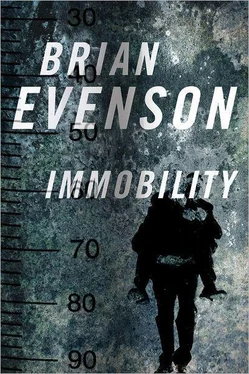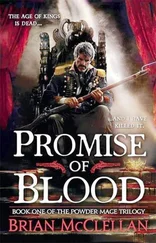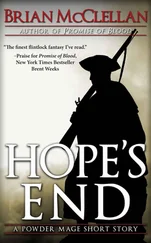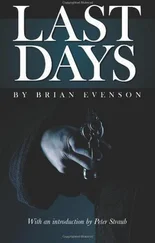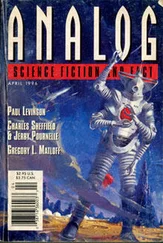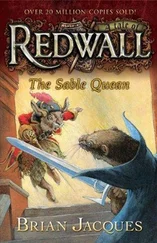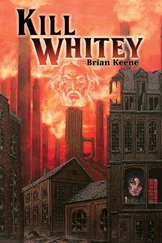Then the dream focused. He found himself in a rectangular room topped by a dome, pendentives descending to each of the four corners of the room and coming to ground in four separate piers. Irregular ribs radiated in a spiral pattern from the dome’s center to gather around a circular opening at the summit. A church, maybe, or some sort of capitol building. It was made of stone, probably granite, and lit only through the opening in the top of the dome itself, and through a series of narrow windows in the rectangular room below. He could hear something, muffled laughter, but when he turned toward where he thought it was coming from, it seemed to be coming from somewhere else.
He moved toward one of the piers. When he touched it, he discovered that what he’d thought was shadow was, in fact, something else, a glutinous gray substance that clung to his hands and fingers and seemed not to want to come off. What he’d thought at first were irregular ribs were lines of this substance, paths made of it, and as he looked closer, he could see a large tadpole-like creature wriggling along one of the paths. What was it? He removed his gun and aimed it, but before he could fire, the creature slithered up the dome and through the hole at the top and was gone.
The scene blurred away and then refocused again, and he was in a large room, but it felt small since it was filled with large metal cabinets that ran to the ceiling, cutting out narrow rows. He was walking down the row, following someone whose face he couldn’t see, but he could tell from the back of his head that, just like himself, this man was bald, pale, no longer human. He was muttering to himself, but Horkai couldn’t hear what he was saying. He could sense there was something wrong, but couldn’t quite figure out what. Overhead, fluorescent lights flickered on, flickered off. He was walking slowly, but the figure in front of him was walking even slower still, and each time he slowed down, the figure slowed down even more so that, little by little, he was coming closer and closer. His feet rang strangely on the floor, and he wondered what it was about the floor, or about his shoes, or about both, that made this so.
He looked down and saw that where he had thought he had the legs of a human he had the legs of a horse or a donkey or some other beast of burden, and they were shivering, struggling to hold themselves upright. The sound he was hearing was the striking of his hooves against the granite floor.
Panicked, he looked back up and saw that where before there had been a keeper there was now a figure wearing a thick black hazard suit, moving awkwardly in front of him, swaying, crashing into the cabinets first on one side then on the other. And then the figure crashed into a cabinet and broke through it, and Horkai saw through the hole a large barren expanse under a burning sun.
The man in the hazard suit turned and gestured for him to follow, and then turned and kept walking. Horkai started to push through the jagged hole but his foreleg caught and tore on the metal lip and he found himself falling, the man in the hazard suit no longer there, nothing there but dust and misery stretching as far as the eye could see.
Lucky for me, he thought in the dream on the way down, that I’m safe in storage.
But then he woke up to discover that, for the most part, it wasn’t a dream at all.
WHEN HE FINALLY WOKE for good, it was to see a face staring down at him, light pouring in through a window behind it. It was a face very much like his own—no hair, no eyebrows, no stubble of beard or mustache, only a smooth pale head, blurry, but coming into focus as he blinked.
“There we are,” said a voice soft and smooth as silk. The face it belonged to smiled. At first he thought the face, slender with delicate features, belonged to a woman. And then he wasn’t so sure. And then decided it must belong to a man. “How are we feeling?”
He tried to move, groaned, his head throbbing.
The stranger reached out and put an open hand on his chest. “Don’t try to get up yet,” he said. “All things in their own time. Can you eat?”
He nodded. The stranger disappeared, came back a moment later with a small open jar.
“We’ll start easy,” he said, and brought the jar close to Horkai’s mouth.
“What is it?” Horkai whispered.
“Baby food, more or less,” said the stranger. He lifted up the jar and looked at it. “I made it myself. Some water, some hardtack, a few preserved things that still looked safe. Soaked it all together, mashed it up,” He slipped a finger into the jar, brought it back out covered with sludge. “Open up,” he said.
At first he shook his head, but the stranger easily slipped his finger into his mouth, forced it through his teeth, held it there until he sucked the finger clean.
“There,” said the stranger, “that isn’t so bad, is it?” He dipped his finger into the jar again. This time Horkai opened his mouth.
When he’d finished the jar, he was still hungry, felt even hungrier than before he started eating, his mouth watering. But the stranger shook his head. “Who knows how long you were out there,” he said. “You have to take it slow. Rest,” he said. “Sleep.” And then he closed the curtains and left him alone in a darkened room.
* * *
HE DID MANAGE TO SLEEP, he wasn’t sure how long. When he awoke, the curtain was open, light coming in again, though whether it was the same day or another he couldn’t say. The man was beside him again, shaking him slightly. He had another jar, and a spoon this time, as well as a bottle with a bent straw. He hooked the straw into the corner of Horkai’s mouth and squeezed the bottle. Horkai felt his mouth flood with water. He swallowed once, then coughed, spluttering it up, then managed to swallow again.
“Too much?” said the stranger, pulling the bottle away. When Horkai kept coughing, he turned him on his side, patted his back until saliva oozed out of the corner of his mouth and he stopped. Just like when they woke me up from storage, thought Horkai. “Sorry about that,” the stranger said.
When the coughing finally stopped, the man moved him onto his back, held up Horkai’s head with his hand as he began to spoon the mush into his mouth. This went better, the mush going down smoother. When Horkai had finished the jar, the stranger smiled. “I’ll go get another,” he said.
“Are you a keeper?” asked Horkai. “Are you going to kill me?”
“A keeper? I don’t know what you mean,” said the man. “Why should I want to kill you?” he added, and then left.
“How long have I been in storage?” Horkai asked him when he came back.
“Storage?” said the stranger, a puzzled expression. “But you haven’t been in storage,” he said.
“But,” said Horkai, “I thought—”
“No,” said the stranger. “I found you and took you in. You were outside, all but dead.”
Then it began to come together, slowly but surely. “You saw my flare?” he finally asked.
“No,” said the stranger. “If there was a flare, I didn’t see it.”
“Who was with you? Who else was talking?”
“Nobody else. Just me.”
“There wasn’t a woman?”
The stranger shook his head.
“Where did you take me first? Some sort of dome?”
The stranger shook his head again. “I found you and brought you straight here. I didn’t take you anyplace else.”
“What about Qatik?” asked Horkai. “And Qanik?”
“I don’t know what those are,” said the stranger, his expression still friendly, still open. “Where they in your backpack?” And then he raised his finger. “There were flares in your backpack,” he said, “and an old flare gun. But I don’t think it had been fired. Also a head.”
Читать дальше
